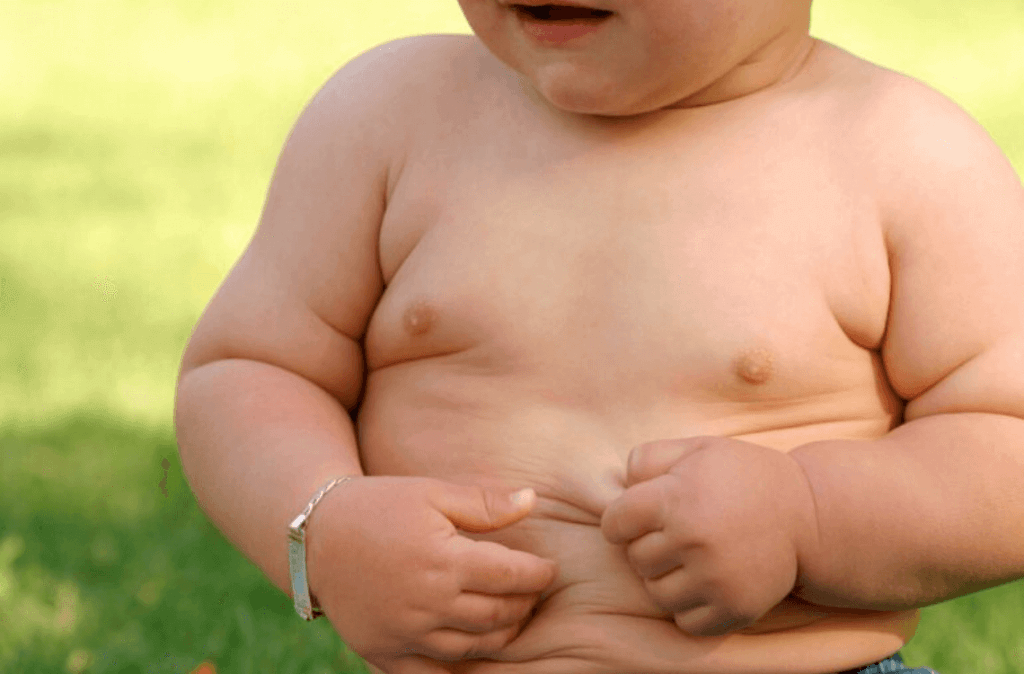What is the first thing that comes to mind when you see an obese toddler? Do you think they are adorable and cute? Or are you more worried about their health?
Usually, when grandparents see their chubby grandchildren, they cuddle and compliment them on their cuteness.
They will insist that it is just “baby fat” and these toddlers will eventually grow up to be slim. However, if we do not take this issue seriously, these toddlers will develop obesity at a very young age.
One such example is my cousin, Aaron (not real name). During his regular check-ups, at the age of three, he was diagnosed as obese by the doctor.
What effect did that have on him? The obvious effect was that he would gasp for air after just a few minutes of playing with other toddlers his age.
What is the Effect of Obese Toddlers?
Due to obesity, toddlers will more likely to suffer from breathing problems such as asthma and sleep apnea.
On top of this, they also put themselves at risk of joint and bone problems. Their musculoskeletal systems are not able to support their body weight.
Aside from being exposed to negative stereotypes, obese toddlers are often excluded from physical activities, especially competitive ones. They tend to be slower than their peers and have shortness of breath.
These toddlers will eventually suffer from low self-esteem, low self-confidence, and experience negative body image, which will certainly affect their daily performances in all areas of their lives.
If you assume that it is normal for toddlers to be slightly obese, you are wrong.
If the obesity issue is not addressed now, it will most certainly continue until adulthood! So, are you going to sit back and wait for your obese toddlers to lose weight on their own?
3 Ways to Deal with Obese Toddlers
# 1: Provide healthy and nutritional snacks
Can your toddler indulge in snacks? Of course, he or she can. You just need to be vigilant about which treats they can eat on a daily basis.
Rather than offering them sweets with little nutritional value, with artificial flavouring and colouring, fill their stomachs with whole foods that will provide them with energy and nutrition.
Fresh fruits, mixed nuts, dried fruits, whole-grain cereals, yoghurt, fruit smoothies, and even cheese are kid-friendly and tasty snacks for our toddlers!
Do not worry if you are concerned whether it is too costly to be healthy. You can shop for healthy snacks for your toddlers here!
How about making healthy snacks with your toddlers? Simply follow this detailed guide with recipes included for irresistible granola energy bars and adorable oatmeal cookies.
Keep in mind that if you have babysitters for your toddlers, you can also send these healthy snacks with them.
To get your toddlers accustomed to nutritious snacks, communicate with the babysitter about the importance of providing healthy treats and avoiding unhealthy snacks.
# 2: Set meal times to avoid overeating
We understand that toddlers get hungry in between meals. However, this is not an excuse to bulk up on excessive portions of food in their daily diets.
Remember Aaron? Yup, the cousin. He would eat large portions of his main meals but also beg for larger portions of food in between meals.
What made the situation worse was that he would request supper every night between 12am and 2am, insisting that he was hungry. My aunt continued to feed him despite not understanding how serious the problem was, and his appetite eventually grew larger and larger. We were astounded by how much rice he could consume in one meal, as compared to other toddlers his age.
Thus, no matter how challenging it is, we must determine set meal times and food portions for our toddlers. We should explain to our toddlers that they should only eat at certain times of the day and with a certain amount of food.
And when our toddlers throw tantrums because they want to eat at non-meal times, we must not cave! With this, we will be able to prevent them from overeating and help them control their appetite and lose some weight.
# 3: Limit screen time and encourage more physical activity
How can we encourage our toddlers to be more active? It can be as easy as limiting their screen time. Once they are not on their gadgets the whole day, we will be able to able to create schedules for physical activity with our toddlers.
Ball sports, hide-and-seek, scavenger hunts, and dancing are some fun physical activities that you can try with your toddlers at home. Just get them moving around the house while keeping an eye on them.
In the game of hide-and-seek, you can hide in obvious places with one leg or arm visible. You can also make little noises when they get close to you to get them excited and happy with the game.
How about some dancing? Simply playing three random songs for a day will get your toddlers moving. Do not focus on anything too structured as this will kill their motivation!
You can also squeeze in some fun stretches for your toddlers before any physical activities, such as the child’s pose, cobra pose, seated toe contact, and overhead arm stretch.
Start with 15 minutes of daily physical activity and progressively increase the length to 30 to 45 minutes per day. Engage them in active free play, with social distancing, with other siblings and toddlers to get them moving more!
Obese Toddlers Deserve A Better Future
Physical fitness should be our highest priority, regardless of age. If our children start off with bad health, they will not be able to attain success in most areas of their lives in the future.
Let us work together to give our toddlers a better future, by committing to establishing a healthier routine in their everyday lives. You owe it to them!
